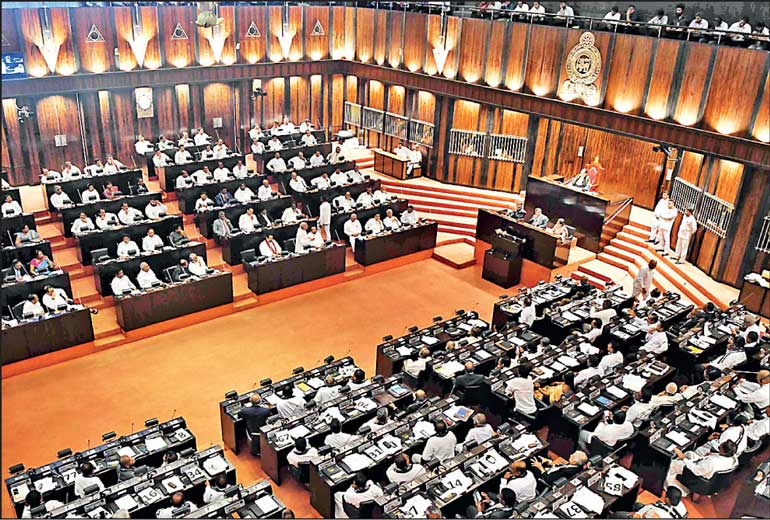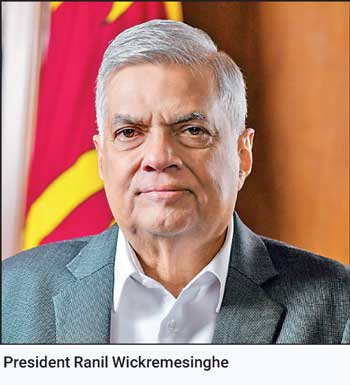Wednesday Feb 25, 2026
Wednesday Feb 25, 2026
Saturday, 29 April 2023 00:42 - - {{hitsCtrl.values.hits}}

 The Resolution for the Implementation of the Arrangement under the $ 3 billion four year Extended Fund Facility (EFF) of the International Monetary Fund (IMF) for Sri Lanka obtained the seal of approval with a majority of MPs voting yes to it in Parliament yesterday.
The Resolution for the Implementation of the Arrangement under the $ 3 billion four year Extended Fund Facility (EFF) of the International Monetary Fund (IMF) for Sri Lanka obtained the seal of approval with a majority of MPs voting yes to it in Parliament yesterday.
The resolution received 120 votes in favour while only 25 votes were cast against it after a three-day debate.
The Parliament has now approved the implementation of a four-year program which will seek to resolve to bring stability post unprecedented crises.
The Main Opposition party the Samagi Jana Balawegaya (SJB) abstained from voting and its MPs were not present in the house when the vote took place. The SJB was joined by the Tamil National Alliance (TNA) and the Sri Lanka Freedom Party (SLFP) which opted to give the vote a miss.
However, SJB MP A.H.M. Fowzie, SLFP MP Duminda Dissanayake, Independent MPs John Seneviratne, Anura Priyadarshana Yapa, Priyankara Jayaratne, Sudharshini Fernandopulle, Nimal Lansa and A.M.A. Athaullah voted in favour of the resolution. Meanwhile, the Freedom People’s Congress, Supreme Lanka Coalition and the National People’s Power Party were the only groups to vote against it.
The IMF agreement was presented to Parliament by President Ranil Wickremesinghe on Tuesday (25) and he urged all parties to support it.
Wickremesinghe appealed to Parliament to back the critical $ 2.9 billion Extended Fund Facility from IMF claiming it was critical for the future stability and prosperity of Sri Lanka.
Wickremesinghe said the Government is seeking to reduce the country’s debt by $ 17 billion through its restructuring process. President Wickremesinghe on a previous occasion noted that the key conditions of the IMF agreement would be enacted into law, once the resolution on the implementation of the EFF program is passed in the Parliament.
“Loan restructuring talks will begin with India together with the Paris Club, a group of major creditor nations, and separately with China. It may be necessary to restructure loans obtained locally with proper safeguards for banks and employees’ provident funds from which the Government has borrowed,” he said.
The approval is expected to support Wickremesinghe as he makes efforts to hold critical debt restructuring negotiations with the country’s external creditors and privatise State-run enterprises. Sri Lanka announced last year that it was suspending repayment of its foreign loans because of a severe foreign currency crisis resulting from the impact of the COVID-19 pandemic, excessive borrowing by the Government, and efforts by the Central Bank to stabilise the Sri Lankan rupee by using scarce foreign reserves thus forcing it to seek IMF assistance.
